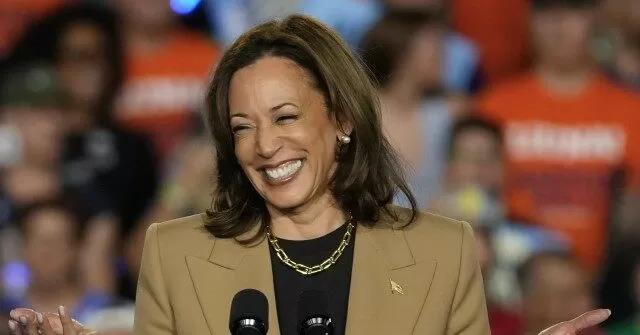Vice President Kamala Harris has been making waves on social media, particularly on Snapchat, in her quest to connect with young voters. However, her success on the platform has also highlighted an interesting dilemma – Snapchat’s decision to not reinstate former President Donald Trump’s personal account while simultaneously seeking his campaign’s advertising on the same platform.
The post-election chaos and controversy surrounding Trump’s social media ban has been well-documented. The former President was permanently banned from Twitter, temporarily banned from Facebook, and faced similar restrictions on other platforms like YouTube and Instagram. However, Snapchat took a different approach by permanently suspending his account while also reaching out to his campaign for advertisement opportunities.
Snapchat’s decision to not reinstate Trump’s account may seem like a strategic move to maintain their platform’s integrity and avoid any potential backlash. But it also raises concerns about the platform’s control over free speech and their bias towards certain political figures. This move also seems to contradict their previous stance on political advertising, as they had initially banned all political ads in 2018.
Since its launch in 2011, Snapchat has become a popular platform among young voters, with 90% of its users falling in the 13-24 age range. With the 2020 election being highly influenced by the youth vote, it’s not surprising that both the Trump and Biden campaigns heavily utilized the platform for voter outreach and advertising. So, it’s no surprise that Snapchat would want to capitalize on this lucrative advertising market.
But Snapchat’s decision to not reinstate Trump’s account and simultaneously seek his campaign’s advertising has raised questions about their priorities and potential bias. On one hand, they claim to have suspended his account for violating their community guidelines, but on the other hand, they are willing to work with his campaign for financial gain. This raises concerns about the platform’s true motives and whether or not they are truly committed to promoting a fair and unbiased political discourse.
Moreover, Snapchat’s refusal to reinstate Trump’s account has led to accusations of election interference. The former President’s team has accused the platform of trying to silence their voices and prevent them from reaching out to young voters. This, coupled with their willingness to work with the Biden campaign, has raised concerns about the platform’s neutrality and caused further division among users.
Snapchat’s role in the 2020 election cannot be ignored. The platform was used by both campaigns to engage with young voters and spread their message. However, their decision to not reinstate Trump’s account has certainly given Vice President Kamala Harris an upper hand in terms of social media presence. With her active and engaging Snapchat presence, she has been able to connect with young voters and promote her agenda successfully.
This is not the first time Snapchat has faced criticism for their handling of political content. In 2018, they faced backlash for promoting a “Would You Rather?” game ad that asked users if they would rather “Slap Rihanna” or “Punch Chris Brown”. This ad was seen as making light of the domestic violence incident between the two singers, leading to outrage and a significant drop in Snapchat’s stock value.
Despite these controversies, Snapchat remains a popular platform among young users, and their decision to not reinstate Trump’s account may not significantly impact their user base. However, it does raise concerns about the platform’s role in promoting a fair and unbiased political discourse.
In conclusion, Vice President Kamala Harris has been dominating Snapchat in her quest to connect with young voters. However, her success on the platform has also highlighted Snapchat’s decision to not reinstate former President Donald Trump’s account while simultaneously seeking his campaign’s advertising. This move has raised concerns about the platform’s bias and potential election interference, but it has also given Harris an upper hand in terms of social media presence. It remains to be seen how Snapchat will handle future political content and maintain their stance on free speech and neutrality.






![Complete BritRail Pass Guide [Types, How to Use It, Pros + Cons]](https://inside-news.uk/wp-content/uploads/2025/06/00221EB4-BCA2-4DBB-6CD4-83DBC37D71FA-120x86.webp)















